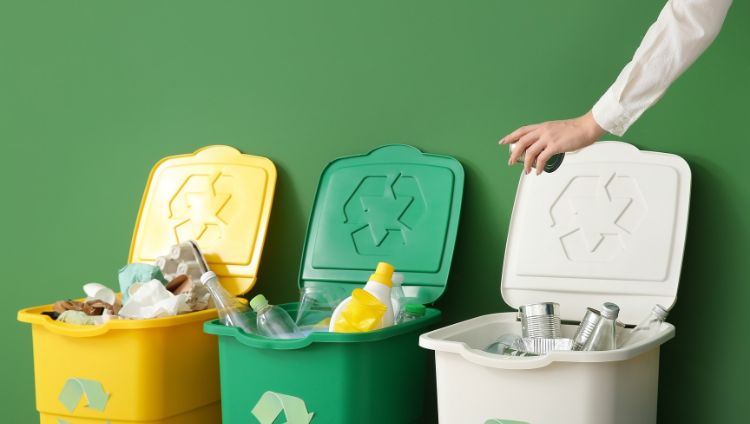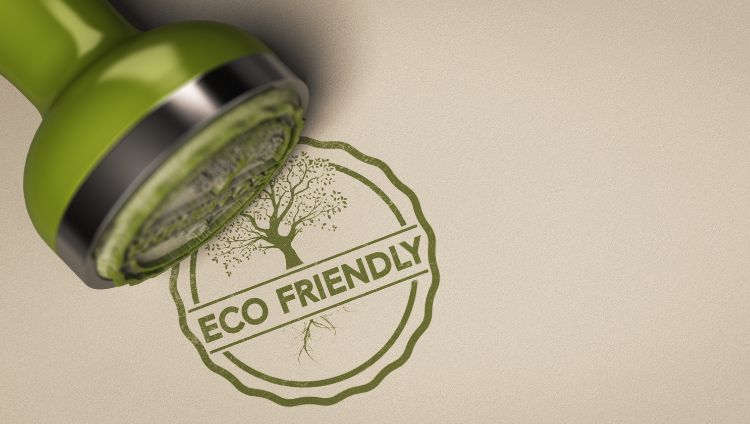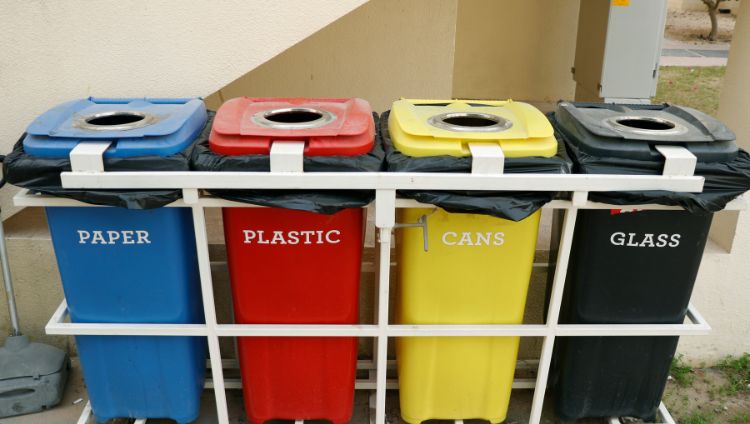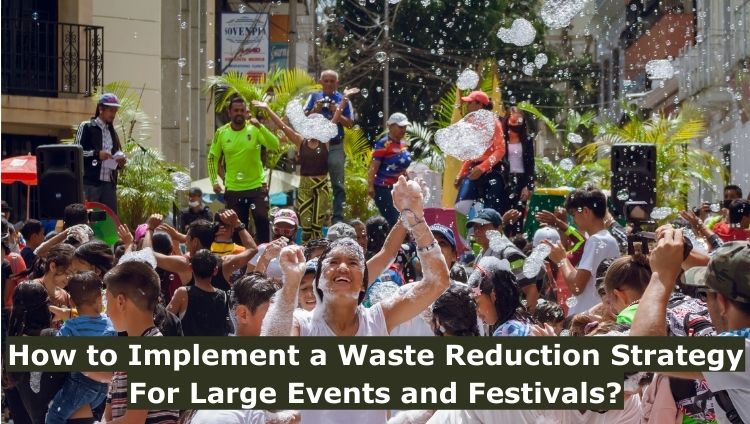Waste Reduction Strategy is essential when organizing big events and festivals. While they create exciting experiences and lasting memories, they can also generate significant waste. Implementing a proper strategy helps minimize environmental impact.
That’s why it’s super important to have a plan to make less waste.
In this article, we’ll give you a detailed guide on How to implement a waste reduction strategy for large events and festivals so we can enjoy the good times while taking care of our planet.
Learning About How Events and Festivals Affect the Environment?
When we have events and festivals, like music concerts, food fairs, or sports games, they often create a whole bunch of waste.
Think about all those food wrappers, plastic cups, and other stuff people throw away.
This waste can end up in landfills, and when it breaks down, it can release harmful stuff into the air and soil, which isn’t great for the planet.
So, we need to do something about it.
We need a plan to manage this waste responsibly. This means finding ways to make less trash and handle it properly when we do have some. By doing this, we can help protect the environment and keep our favorite events enjoyable for everyone.
Related Post: How Waste Management affects the Environment?

Conducting a Waste Audit
Waste audits may seem complicated, but they fundamentally involve a thorough examination of the waste we create.
Why is this important? By gaining insight into the different types and quantities of waste we produce, we can formulate effective strategies to minimize it.
We begin by carefully categorizing the various types of waste, such as paper, plastic, and food scraps, to accurately identify what ends up in our bins.
This detailed understanding acts like a roadmap, guiding us in developing a plan to reduce waste and enhance recycling efforts.
It’s like solving an intriguing puzzle that benefits the environment – and that’s truly remarkable!
Think About Waste Reduction From the Beginning
When planning your event, be it a concert, fair, or large gathering. It’s essential to prioritize waste reduction from the outset.
Right from the very beginning, like when you’re designing the event, consider how you can reduce waste.
Related Post: How to Reduce Waste in Your Daily Life?

Encourage Reusable and Eco-Friendly Choices
A practical approach is to motivate attendees to bring their own reusable items, such as water bottles, utensils, and bags. Establishing water stations for convenient refills can enhance this initiative.
Another effective measure is to adopt a policy that prohibits single-use plastics, such as disposable cups, straws, and plates, opting instead for reusable or compostable alternatives.
By actively encouraging the use of reusable and eco-friendly options, you not only minimize waste but also foster a more environmentally conscious event.

Set Up Clear Trash Collection Spots
How about we simplify the process of disposing of trash for everyone? We could establish designated areas for recycling, compost (for food scraps), and regular trash. Additionally, let’s ensure there are clear signs to assist everyone in locating the bins effortlessly. Our aim is to make it convenient for people to contribute to maintaining cleanliness.

Teach People About Trash
It’s also a good idea to tell people about how to throw away their trash properly.
You can do this by creating fun displays and demonstrations. This way, everyone knows what goes where – like which bin is for recycling and which one is for regular trash.
Using Technology to Share Information
Let’s explore leveraging technology to promote our fantastic waste reduction initiatives for the upcoming event.
Utilizing social media, event apps, and our website, we can effectively disseminate updates before and during the event, ensuring everyone stays informed.
Furthermore, we’ll actively encourage participation and collaboration, inviting everyone to join us in our mission to significantly reduce waste. This approach not only keeps everyone engaged but also energized about making a meaningful impact!
Frequently Asked Questions
Why is waste reduction important for large events and festivals?
Waste reduction is crucial because large events and festivals generate significant amounts of waste, which can harm the environment if not managed properly.
Reducing waste helps conserve resources, minimize pollution, and promote sustainability.
What are some key components of a waste reduction strategy for events?
Key components include waste audits, source reduction, recycling and composting programs, education and awareness campaigns, and collaboration with eco-friendly vendors and suppliers.
How can event organizers encourage attendees to participate in waste reduction efforts?
Event organizers can encourage participation through clear signage, designated waste sorting stations, volunteer assistance, and incentives such as discounts or rewards for responsible waste disposal.
Are there any legal regulations or permits required for waste reduction at events?
Regulations and permit requirements vary by location. It’s essential to check with local authorities and waste management agencies to ensure compliance and obtain necessary permits.
What types of materials can be recycled or composted at events?
Common recyclables include paper, cardboard, glass, and certain plastics. Compostable materials often include food waste, napkins, and compostable service ware made from materials like cornstarch or sugarcane.
How can events ensure that waste reduction efforts are cost-effective?
To make waste reduction cost-effective, events can explore sponsorship opportunities with waste management companies, negotiate favorable terms for recycling and composting services, and reduce waste generation through careful planning.
Conclusion
Implementing a waste reduction strategy for large events and festivals is essential for upholding our commitment to environmental sustainability. By prioritizing waste minimization, we can significantly lessen the ecological footprint of these events and provide a positive example for attendees, vendors, and communities.
With thorough planning, education, collaboration, and innovative strategies, event organizers can effectively decrease waste production and redirect significant amounts away from landfills. This approach not only preserves valuable resources but also reduces pollution and environmental damage.
The effectiveness of waste reduction efforts relies on the dedication and cooperation of all involved parties. By uniting our efforts, we can ensure that large events and festivals are both memorable and environmentally responsible, fostering a cleaner and more sustainable future for generations to come.
For further insights into efficient waste management strategies, explore our Blog.


